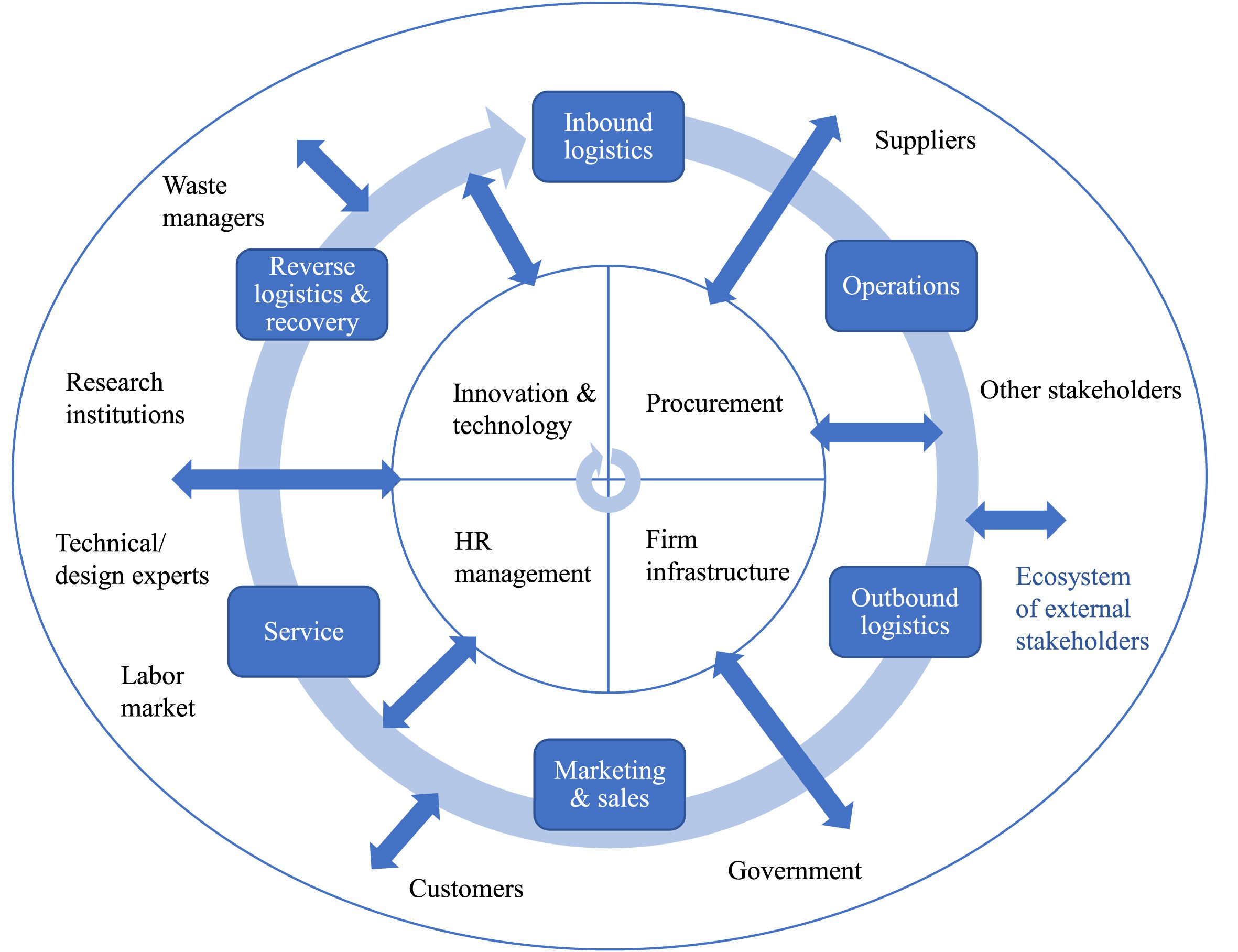Toward a circular value chain: Impact of the circular economy on a company’s value chain processes

On their way toward a circular economy, comp anies are often unsure how circular solutions will affect their organization. Uncertainties due to a design over multiple life cycles and a complex interconnectedness with diverse stakeholders make circular economy effects difficult to predict.
This study contributes new knowledge on the implementation of a circular economy by analyzing the implications of circular solutions for a company’s value chain processes. In a systematic literature review, potential implications of a circular economy are structured along Porter’s value chain framework and seven overarching main topics are identified. They refer to stakeholder collaboration, consumers’ perception, Industry 4.0, performance measurement, multiple life cycle thinking, circular economy-specific skills, and a supportive top management and corporate culture.
The analyses show that the linear structure of Porter’s framework is not sufficient to reflect circular business practices, requiring changes toward a circular and interconnected view. Therefore, a circular value chain model is newly proposed which adapts the traditional management perspective of a company’s operating model to circularity. The study connects insights from management and circular economy research, integrates circularity in managerial thought patterns, and supports strategic decision-making in a circular economy context.
